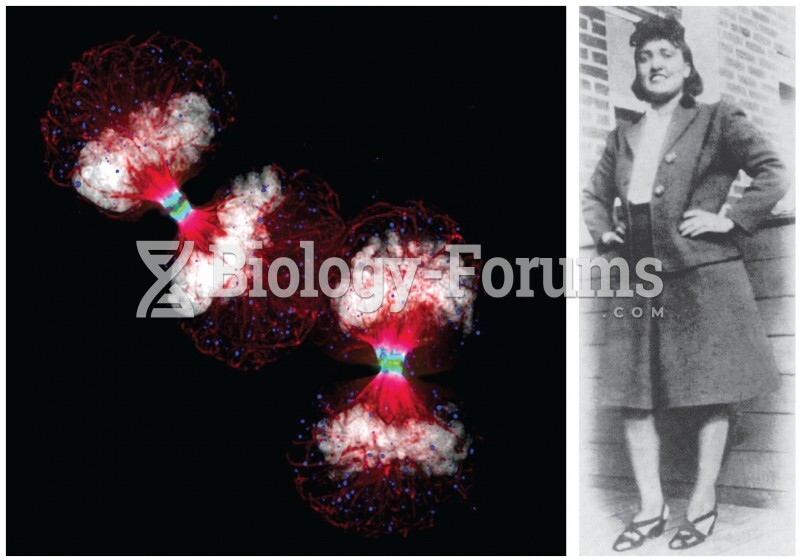|
|
|
Nearly 31 million adults in America have a total cholesterol level that is more than 240 mg per dL.
There are more nerve cells in one human brain than there are stars in the Milky Way.
On average, the stomach produces 2 L of hydrochloric acid per day.
For about 100 years, scientists thought that peptic ulcers were caused by stress, spicy food, and alcohol. Later, researchers added stomach acid to the list of causes and began treating ulcers with antacids. Now it is known that peptic ulcers are predominantly caused by Helicobacter pylori, a spiral-shaped bacterium that normally exist in the stomach.
You should not take more than 1,000 mg of vitamin E per day. Doses above this amount increase the risk of bleeding problems that can lead to a stroke.







